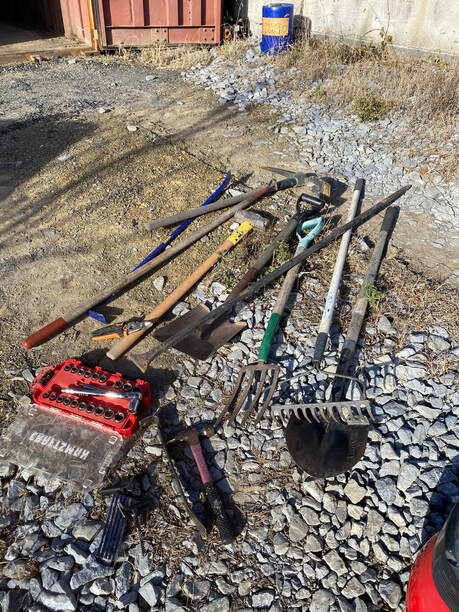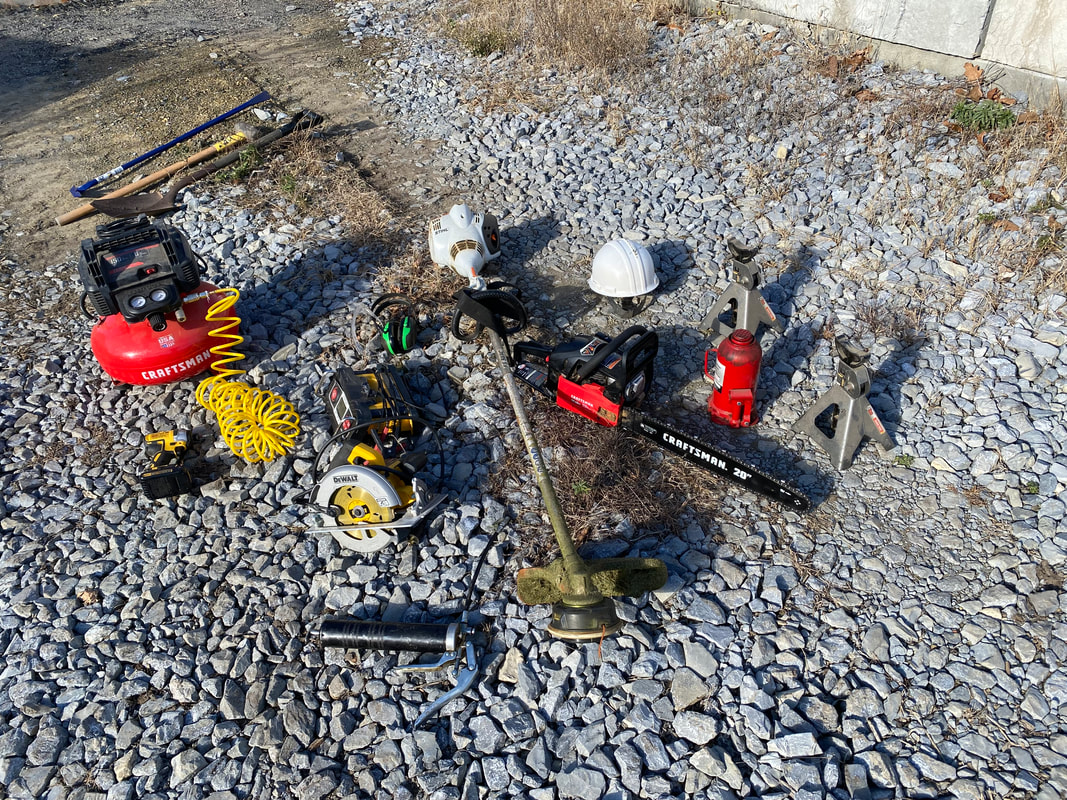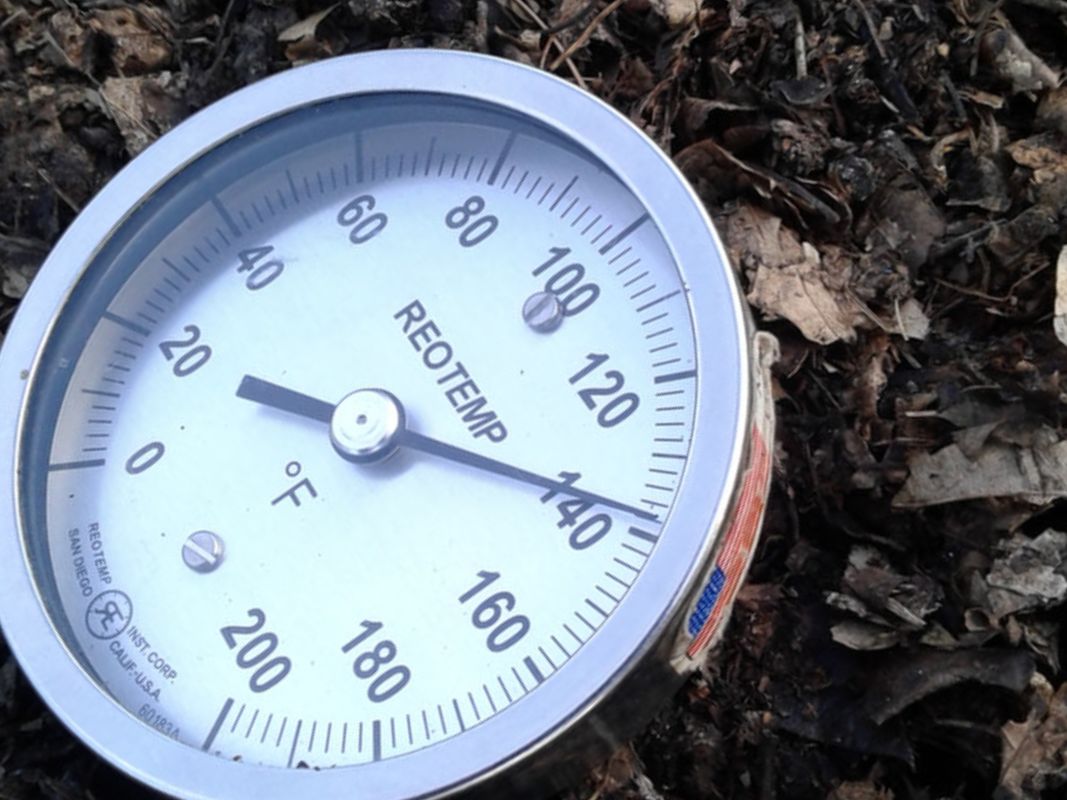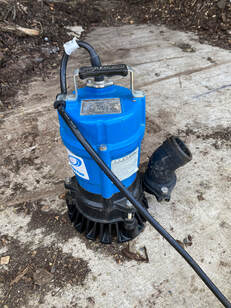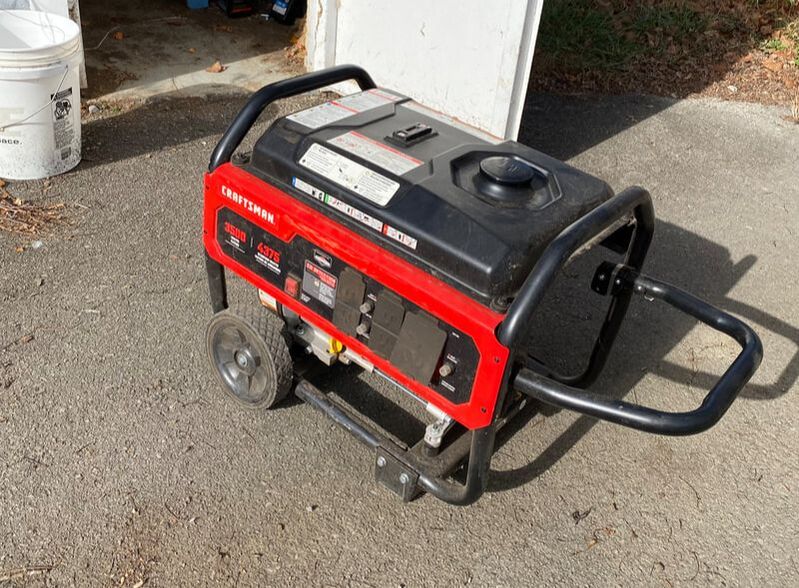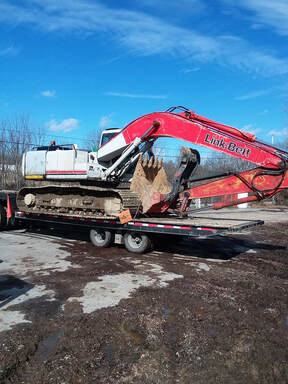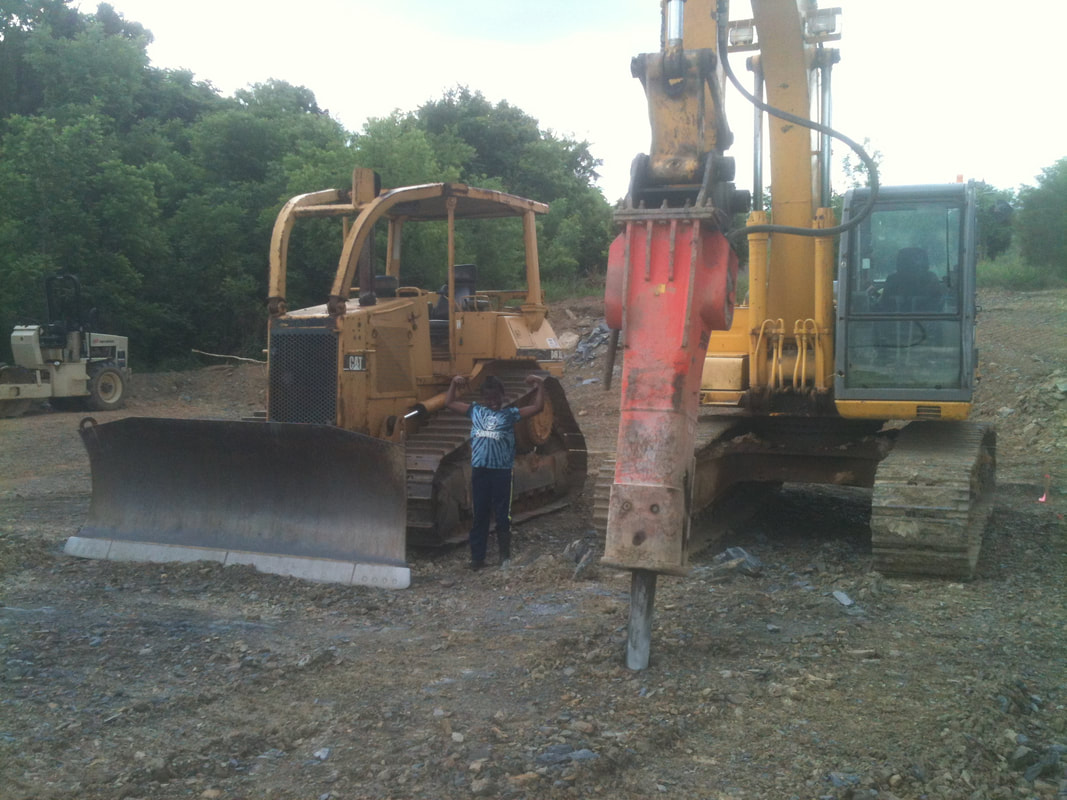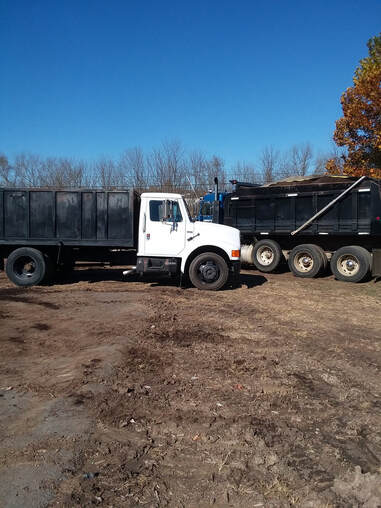|
Read below or click this link to download this guide for free.
|
| ||||||
The compost industry boasts a wide variety of equipment to help with the essential tasks of collection, hauling, processing, and sales. If you think the size of some of this equipment is intimidating, take a look at the price tag! Large grinders can cost upwards of $600,000 … or even up to $1 million! This article lists 13 pieces of compost business equipment that you will need. Fortunately, you don’t need to OWN this equipment to get started as a commercial composter. In this post, you will learn the bare essential equipment that you’ll need to own to operate a compost processing facility. Then, you’ll start to learn how to access other (often larger and more expensive) equipment that you don’t need to buy in the first few years.
Owned Compost Business Equipment
You will need to use the equipment in this section so often (and sometimes without much advance warning) that you’ll want to have it on-hand at all times. Also, this equipment is so important to your operation that you’ll want to develop a good feel for how to use it expertly.
Skid Steer
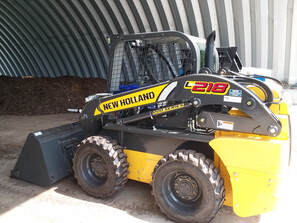
I cannot emphasize the importance of this piece of equipment enough. The skid steer is the workhorse of my operation. I use it for everything from mixing the feedstocks to loading my customers’ pickup trucks and dump trucks. I got by for three and a half years with a thirty year-old Bobcat 743 that I had bought for $11,000. Eventually, down time and repair costs were killing me; so I finally bit the bullet and bought a New Holland L218 for $31,000. It was the smallest and cheapest skid steer that I could find new. I’ve had it for several years now and have loved it. I work it pretty hard, but I keep up with the maintenance schedule and store it in a 20ft shipping container with some buckets, tools, and other odds and ends. More on skid steers here.
Pickup Truck
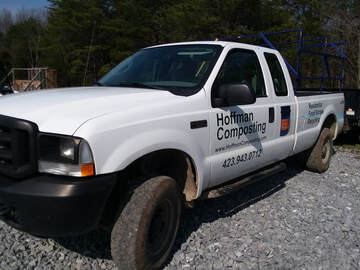
Whether it’s picking up buckets of food scraps, hauling some rental equipment, or delivering compost to customers, you’ll need a good pickup truck with four wheel drive. And don’t go too light duty. I have a RAM1500 Classic. It’s been great.
Dump Trailer
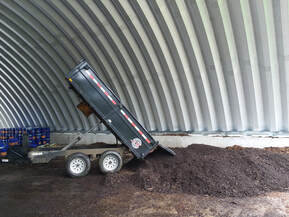
It would be great to have a dump truck, but it isn’t necessary. A dump trailer can be used to pick up feedstocks, to move material around at your facility, and to deliver finished compost to your customers. Many people want a few cubic yards of compost, but don’t have a pickup or a trailer to transport it. If you don’t offer delivery, you’re going to miss out on a lot of sales. Shoveling it out of the bed of your pickup is doable. I did that for about a year. But it’s very time-consuming and very tiring. Better to get a dump trailer as soon as you have product ready to sell.
Screener
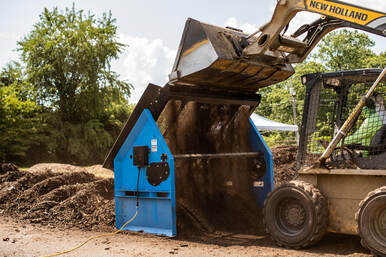
I didn’t have a screener for the first two years of operation. Don’t do that. Learn from my mistake and get one right away. Early on, you don’t need one of the big new $600K models. You can find a small one for under $10K. I have one and make a beautiful product with it. It is not an efficient process, but it gets the job done. I bought it for $4000 new and delivered. It’s a DeSite SLG 68V. I run it off a generator.
Power Tools and Hand Tools
You’ll want a power drill, a circular saw, and a reciprocating saw. You’ll find yourself making all kinds of things out of 2x4s. Oh, and start accumulating 2x4s.
For hand tools, get a couple of shovels (pointed digger and flat-headed), a pitchfork, a hammer, an iron digging bar, a mini crowbar, screw drivers, and a socket wrench set.
For hand tools, get a couple of shovels (pointed digger and flat-headed), a pitchfork, a hammer, an iron digging bar, a mini crowbar, screw drivers, and a socket wrench set.
Other Equipment to Own
You’ll also want to own some 3 ft long compost thermometers, some tarps, a headlamp, some barrels, hoses, a submersible pump, a battery charger (for your dump trailer), and a generator.
Rental Compost Business Equipment
The equipment in this section will sometimes be necessary, but you shouldn’t buy it. You won’t use it often enough to justify the purchase price, let alone the total cost of ownership (TCO).
Compact Track Loader and Mini-Excavator
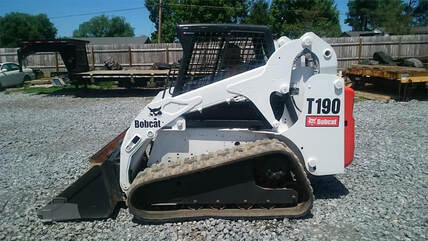
Compact Track Loaders are like skid steers, but they have tracks like a tank. They’re better on bare ground, especially on soft ground, but not as good for surfaces like concrete and asphalt. Compact Track Loaders are also a good bit stronger. That’s why I own a skid steer and rent a compact track loader once or twice each year.
Mini-Excavators are handy for digging drainage ditches (especially useful along access roads) and holes. You’ll probably be renting one of these during your compost business site preparation.
Chipper
These machines are great for chipping up brush for use as a bulking agent in compost production. Be sure to get a big one, one that can handle at least 12″ diameter logs.
Chainsaw
I own a chainsaw and am glad I do. But for quite a while after my previous chainsaw got stolen, I got by with the very occasional high quality rental. Unless you find yourself using it more than a few times each year, just rent it.
Pay or Trade for Someone Else to Use This Compost Business EquipmenT
Some of the people and businesses you interact with may have this equipment. Maybe you can save some money by trading free brush dumping for them to do a job at your facility for you.
Full-Sized Excavator
Bulldozer
Nice for earth moving or stockpiling large amounts of brush, wood chips, or leaves. But it’s not often needed. Pictured below are a bulldozer (left) and excavator outfitted with a breaker (right):
Grinder
A grinder would be great to have, but it’ll be too expensive to buy and maintain early on. Get by without it in the early stages of your business. Pay a grinder to come in and grind up your brush. It won’t be cheap!
Dump Truck
A dump truck would also be great. You could deliver more product, which would open up more potential markets (like developers). It would also help you access feedstocks that would otherwise be out of reach. In the early stages, however, your investments are needed elsewhere.
A local hauler with a few different sizes of dump trucks does long distance and large quantity deliveries for me. I just load him up and off he goes. The customer pays me ahead of time and pays him separately before he unloads at their place. It works out very well and let’s me take sales that I previously had to pass on.
